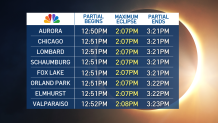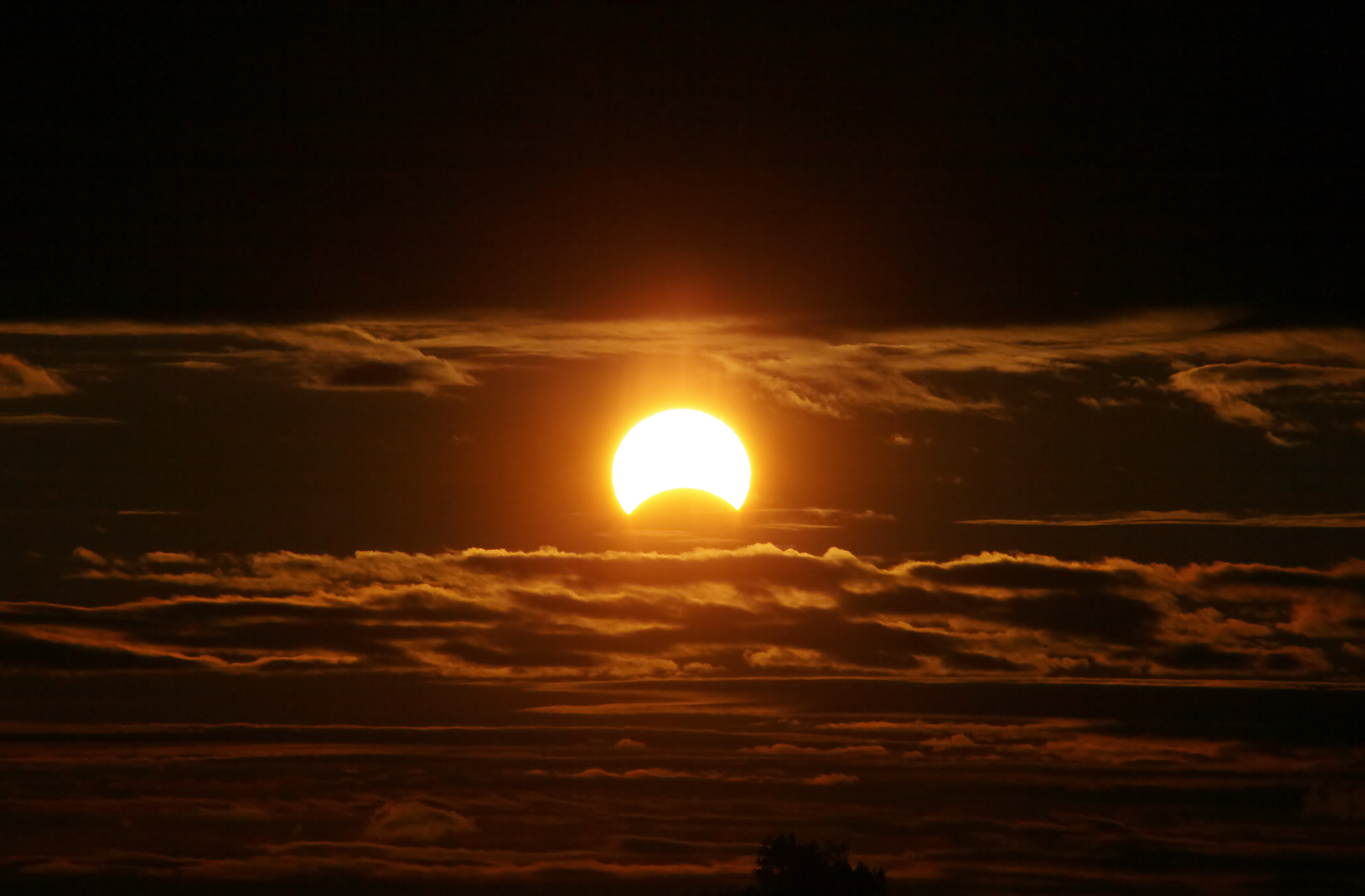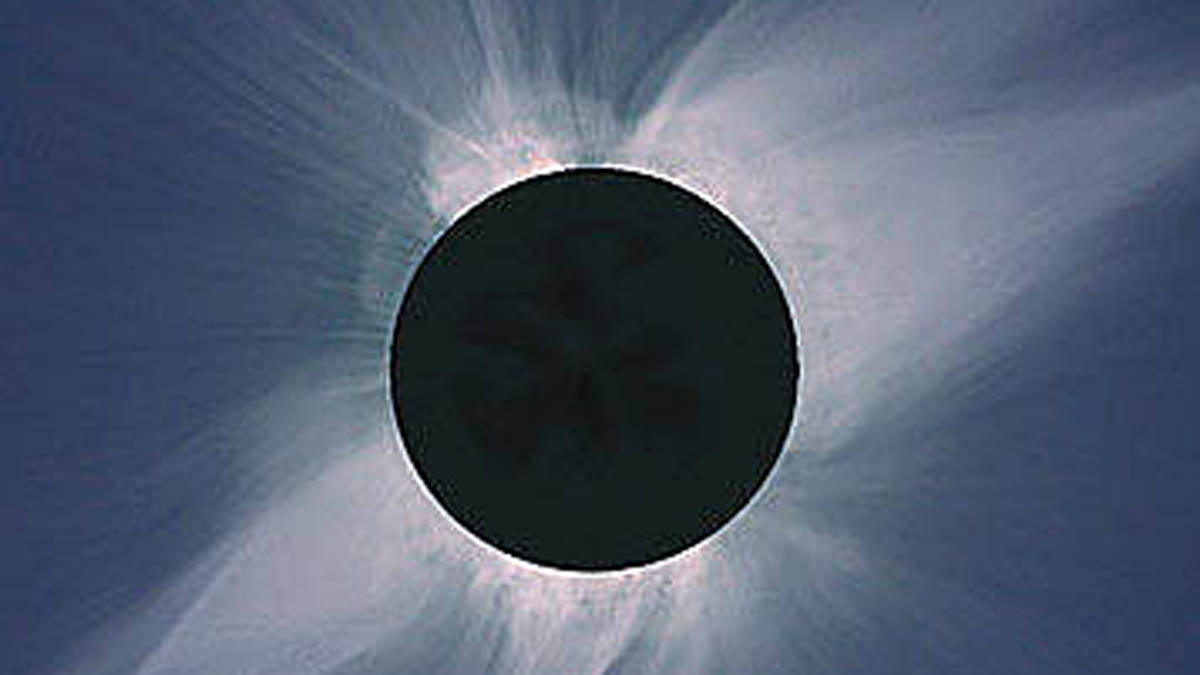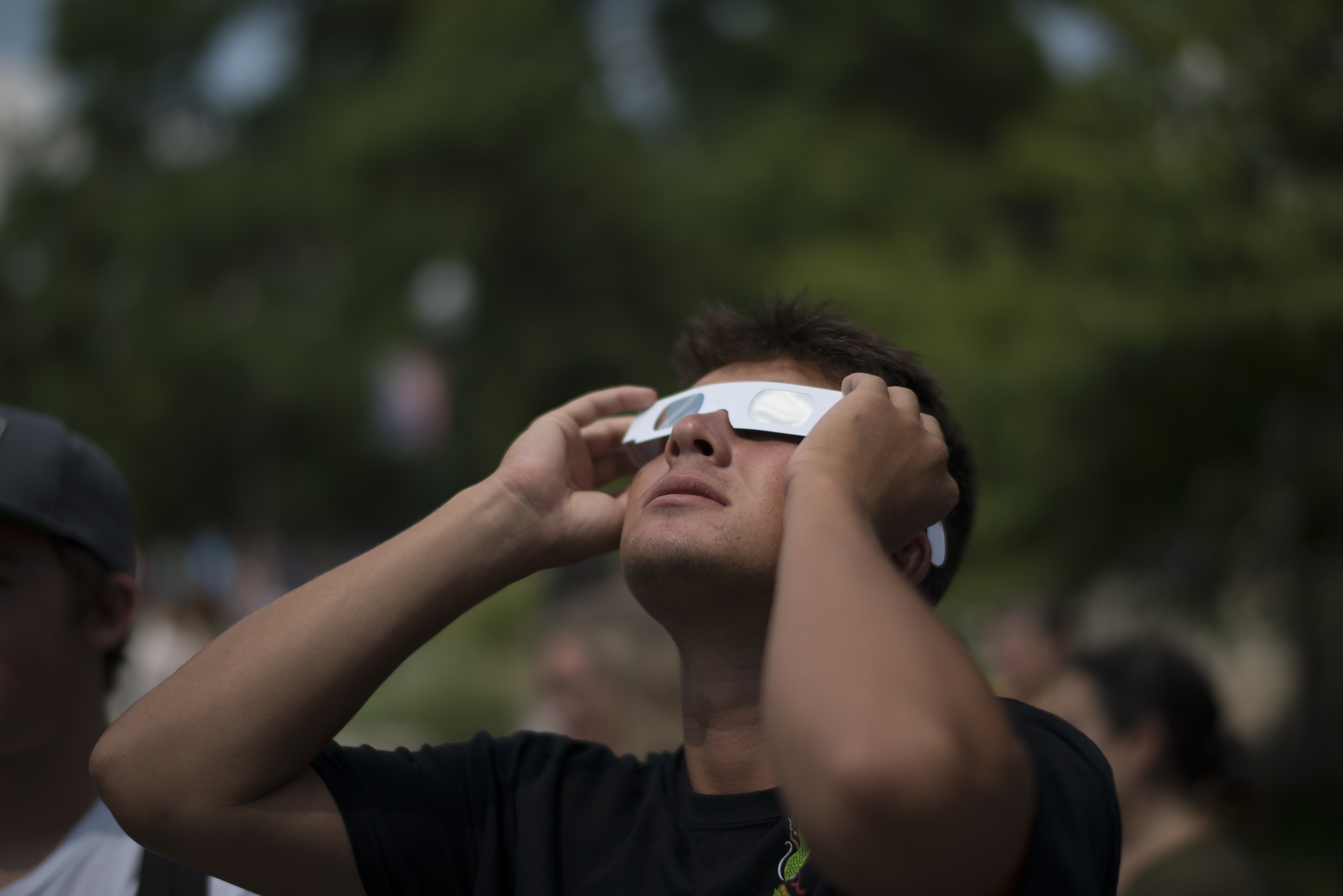What some experts are describing as "the greatest solar eclipse across the U.S. in our lifetime" will take place Monday, and parts of the Midwest and Illinois will have a front-row seat to the action.
While some parts of the state are in the coveted path of totality on April 8 -- meaning they will see the sun completely covered by the moon for several minutes -- Chicago and its surrounding suburbs will experience an estimated 94% totality.
That number is higher than the eclipse in 2017 and even higher than any partial eclipses expected in the near future.
"The 2024 solar eclipse will be visible over approximately 128 miles of Illinois April 8," the Illinois Department of Transportation said in a post. "Totality enters Illinois as it crosses the Missouri state line southwest in Carbondale at 1:58 p.m. The eclipse will follow a diagonal line crossing over Fairfield and exit Illinois at Mount Carmel at 2:06 p.m."
According to Illinois officials, crowds of "100,000 to 200,000" people are expected to travel to southern Illinois for the event. In Indiana, Gov. Eric Holcomb issued an executive order warning of "massive" amounts of people coming to the state for the eclipse could put a strain public safety services.
In Ohio, officials urged residents to "stay home."
"We're telling everyone, 'stay home,' said Assistant Chief of Staff and Director of Communications at Summit County Executive Greta Johnson. "Watch the clips at home, and let your guests sleep on the couch. But make sure that you just keep everyone safe."
Solar Eclipse Interactive Map
13 states and countless cities are in the solar eclipse's path of totality. Here's a full interactive map that shows where the eclipse will be and when.
Feeling out of the loop? We'll catch you up on the Chicago news you need to know. Sign up for the weekly Chicago Catch-Up newsletter.
When will the eclipse be over Illinois and Chicago?
Here's a city-by-city breakdown of what to expect and when, according to NBC Chicago and Time and Date.

Aurora
Partial eclipse begins: 12:50:22
Maximum eclipse: 14:06:37
Partial eclipse ends: 15:21:07
Chicago
Partial eclipse begins: 12:51:28
Maximum eclipse: 14:07:41
Partial eclipse ends: 15:22:02
DeKalb
Partial eclipse begins: 12:50:03
Maximum eclipse: 14:06:09
Partial eclipse ends: 15:20:36
Evanston
Partial eclipse begins: 12:51:38
Maximum eclipse: 14:07:45
Partial eclipse ends: 15:22:00
Fox Lake
Partial eclipse begins: 12:51:29
Maximum eclipse: 14:07:20
Partial eclipse ends: 15:21:26
Lombard
Partial eclipse begins: 12:50:57
Maximum eclipse: 14:07:09
Partial eclipse ends: 15:21:33
Orland Park
Partial eclipse begins: 12:50:48
Maximum eclipse: 14:07:10
Partial eclipse ends: 15:21:42
Plainfield
Partial eclipse begins: 12:50:19
Maximum eclipse: 14:06:39
Partial eclipse ends: 15:21:14
Schaumburg
Partial eclipse begins: 12:51:05
Maximum eclipse: 14:07:10
Partial eclipse ends: 15:21:29
Wheaton
Partial eclipse begins: 12:50:48
Maximum eclipse: 14:07:00
Partial eclipse ends: 15:21:25
(Check your city here)
For those looking to be in the path of totality, here's a list of Illinois cities that fall in that category, according to the Illinois DNR:
Carbondale
Totality begins: 13:59:15
Maximum eclipse: 14:01:20
Totality ends: 14:03:25
Makanda
Totality begins: 13:59:09
Maximum eclipse: 14:01:14
Totality ends: 14:03:19
Alto Pass
Totality begins: 13:58:56
Maximum eclipse: 14:01:01
Totality ends: 14:03:06
Fairfield
Totality begins: 14:01:19
Maximum eclipse: 14:03:21
Totality ends: 14:05:23
Olney
Totality begins: 14:02:12
Maximum eclipse: 14:04:07
Totality ends: 14:06:03
Golconda
Totality begins: 14:00:39
Maximum eclipse: 14:02:04
Totality ends: 14:03:30
Effingham
Totality begins: 14:03:25
Maximum eclipse: 14:03:49
Totality ends: 14:04:13
Mt. Vernon
Totality begins: 14:00:35
Maximum eclipse: 14:02:28
Totality ends: 14:04:20
Marion
Totality begins: 14:01:53
Maximum eclipse: 14:03:54
Totality ends: 14:05:56




